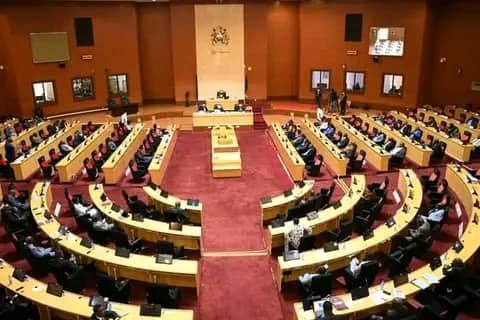By Twink Jones Gadama
Renowned legal expert Garton Kamchedzera has sounded the alarm on Malawi’s legislative landscape, criticizing the frequent amendments to laws as a clear indication of legislative failure. This comes at a time when the opposition Democratic Progressive Party (DPP) is pushing for a review of the new Presidential, Parliamentary and Local Government Act.
At the heart of the controversy lies the law’s stipulation that National Identity Cards are the sole identification required for voter registration. The DPP argues that this will disenfranchise Malawians without the ID, barring them from casting their votes in next year’s elections. However, the party’s stance raises eyebrows, given that its own members of parliament played a role in passing the law.

Kamchedzera, a law professor at the University of Malawi, laid the blame squarely on parliamentarians for prioritizing personal interests over the nation’s. “Frequent amendments of laws prevent the nation from benefiting from the regulations,” he emphasized.
The DPP’s demand for a review has sparked debate on the country’s legislative process. Critics argue that the party’s involvement in passing the law undermines their current stance. “It’s puzzling that the DPP is now calling for a review, despite their initial support for the law,” said a local observer.
Kamchedzera’s comments highlight the need for lawmakers to prioritize the country’s interests. “Legislators must ensure that laws are made with the nation’s well-being in mind, not personal agendas,” he stressed.
The Presidential, Parliamentary and Local Government Act has been a subject of contention since its passage. Civil society organizations have expressed concerns that the law may disenfranchise vulnerable populations.
As Malawi gears up for next year’s elections, the legislative landscape remains a critical concern. The country’s electoral commission has assured citizens that measures are being taken to ensure every eligible voter can participate.
In the meantime, Kamchedzera’s warning serves as a reminder of the importance of effective law-making. “The frequent amendments are a symptom of a larger issue – lawmakers failing to exercise their duties effectively,” he concluded.
The debate surrounding the Presidential, Parliamentary and Local Government Act is far from over. As Malawians await the outcome, one thing is clear: the country’s legislative future hangs in the balance.


